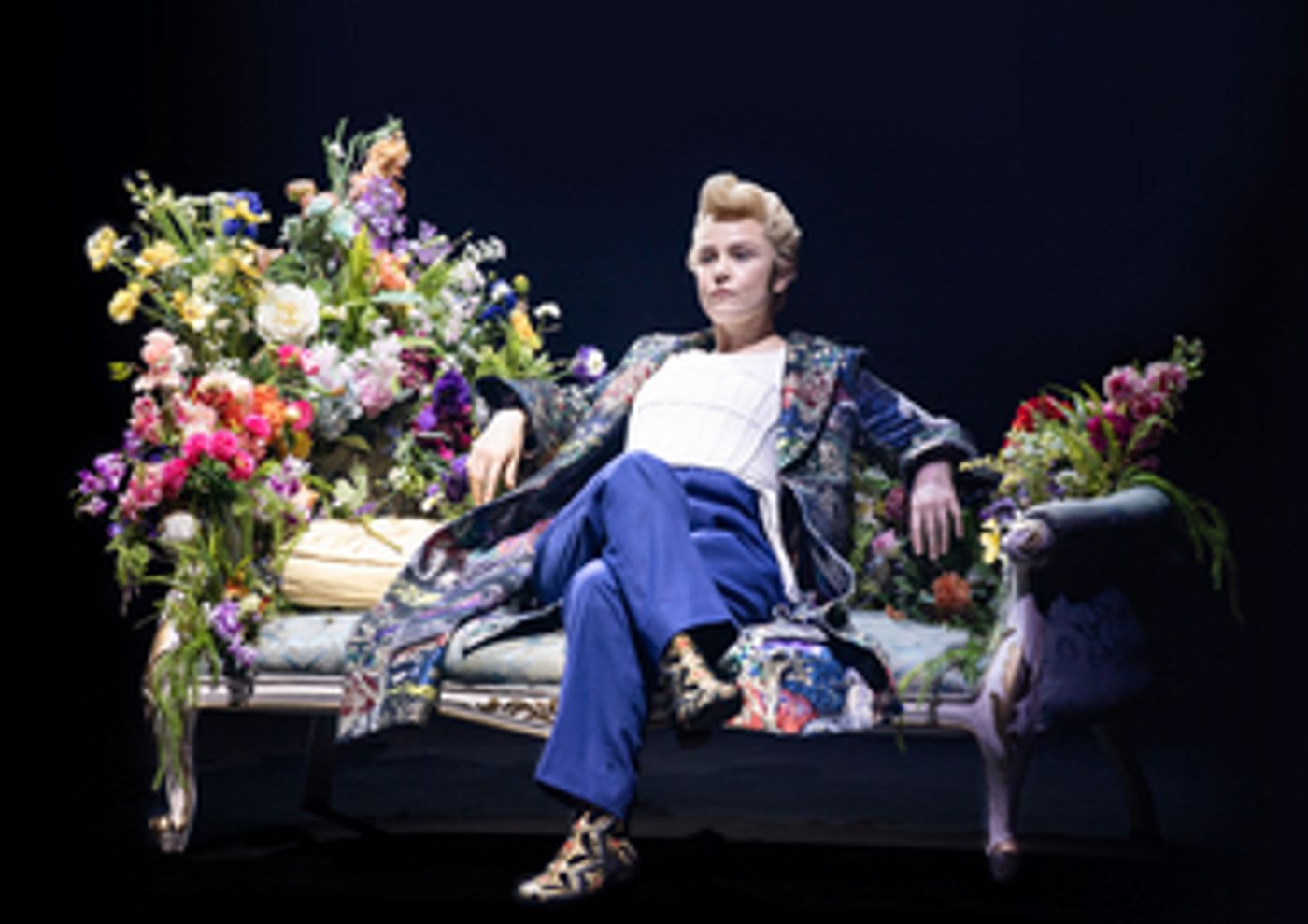Review: THE PICTURE OF DORIAN GRAY – ADELAIDE FESTIVAL 2022 at Her Majesty's Theatre
A dramatisation of Oscar Wilde's classic tale.
 Reviewed by Eddy Knight, Wednesday 16th March 2022.
Reviewed by Eddy Knight, Wednesday 16th March 2022.
The Picture of Dorian Gray is one of those strange novels which most people assume they know, although few people have read, 'you know, the one about the painting in the attic', a fin de siecle novel that was widely condemned in the 1890s and used against Wilde in his trial for homosexuality. Wilde considered it to be both a work of art, and thus unassailable, and at the same time a highly moral-ethical fable. It is this dichotomy that has attracted director Kip Williams to stage it as a commentary on the current 'selfie'-taking 'me' society, presented in this year's Adelaide Festival.
This Sydney Theatre Company production was certainly lavish, it was spectacular, and it was sumptuous, all plaudits that I believe the ghost of Oscar Wilde would have revelled in, and certainly, the audience sitting around me were loving the show, and revelling right along with him.
Much as I wanted to join in the revelry because, at times, I really did enjoy the production, I sometimes found myself caught between my love of live theatre and my frustration when too much film is used. I think that, however ground-breaking at the time, Robert Lepage did the acting profession a disservice some thirty years ago by introducing video cameras and screens to the stage. I go to the theatre primarily to see live bodies in confrontation and situations of conflict which are eventually resolved, for better or worse, hoping that I will see something of beauty along the way. The introduction of cameras and film on stage has diminished already scarce opportunities for actors and created too many one-person shows.
In this production of Dorian Gray, this needs qualifying, since there were something like thirteen other bodies on stage from time to time, pointing cameras at the actor, following the actor with cameras, helping the actor do quick-changes in full view, handing the actor props, or fitting yet another wig. With doubling, actors could have played all of the other roles, but that would have done away with the toys and trickery which, carefully constructed by director Kip Williams and his skilful crew of technicians, delightful as they were to look at, are, in effect, one half of what this show is all about.
The other half is provided by the quite stunning performance of Eryn Jean Norvill in her primary role as Dorian Gray. During the course of the play she moves from innocent young eighteen year old, unaware of the deal she is making, to a corrupt and corrupting forty-something, sometimes appearing stricken by remorse, but, at the bottom, revelling in her own superior cunning.
For all of the other twenty-five characters she plays, I found her not as convincing, perhaps of necessity reducing them to the level of caricatures (e.g. the Sir Les Patterson-inspired politician, or the paintbrush-wielding painter in conversation with the cigarette-wielding, upper-class toff, Lord Henry, of the opening scene). The fact that most of these characters appear courtesy of pre-recorded film, and could be the result of numerous takes, for all we know, reduces the impact that is live theatre. Although it was a clever trick to have Norvill interacting with them, for me it remained a trick and was not totally engaging. The one time that the screens really did work for me was towards the end, when Gray is being chased through the woods. The success of this sequence is perhaps dependent on the fact that it really is a moving film being projected onto overlapping screens while the actor runs across in front.
There were many such devices throughout the piece, such as a couple of occasions when Norvill, as Gray, disputed with Norvill, as narrator, as to who should say the next few lines. These did provoke a gentle ripple of laughter around me, but nothing more, and were soon forgotten. Nevertheless, I am sure that Wilde would have approved, he was a very clever and witty man and his most memorable epigrams are almost tricks themselves, such as the one we all recognised being quoted at the beginning of the play, "There is only one thing in the world worse than being talked about and that is not being talked about". I am sure that this production will be much talked about.
Photography, Daniel Boud
Reader Reviews
Videos

